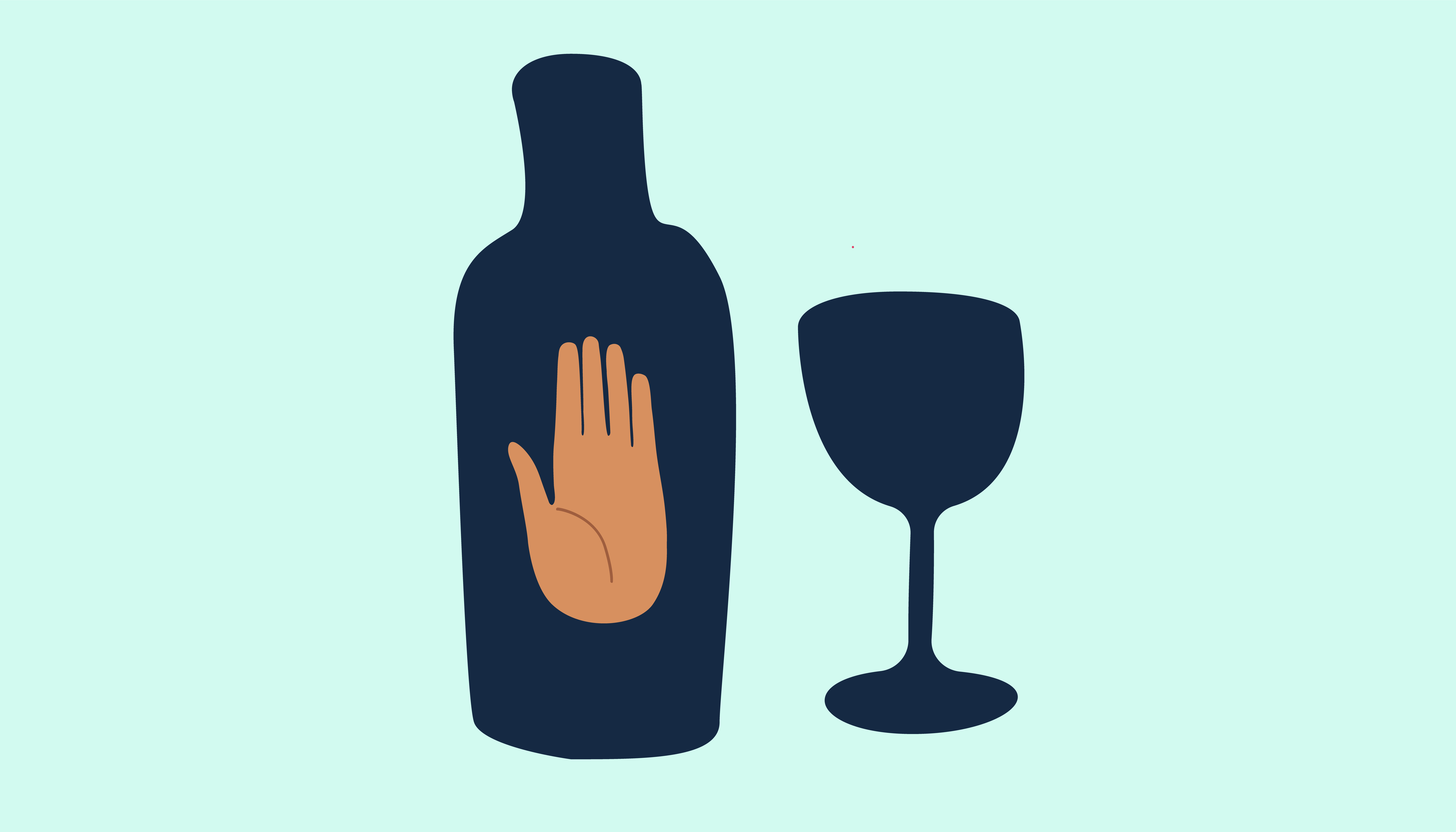Quick facts
- Globally, alcohol consumption has increased since the coronavirus outbreak
- Five simple questions can help you figure out if your drinking has become a problem (see below)
- Reasons to cut down – or give up – include better sleep, a more stable mood and greatly reduced risk of developing dementia, heart disease, stroke and cancer
If you’ve been drinking more since the coronavirus outbreak, latest figures suggest you’re not the only one. Alcohol consumption worldwide has gone up in recent months. In the UK around 1 in 5 people have been drinking more frequently since March. Drinking has also gone up by 10% in France, 9% in Spain, 8% in Germany and 7% in Italy.
Are you drinking too much? 5 questions to ask yourself.
Current guidelines in the UK advise men and women not to drink more than 14 units a week, spread over 3 days. This is considered ‘low risk’ drinking.
So, how can you tell if you might have a problem with alcohol? ‘Most people instinctively know something’s not right,’ says Lina Anderhell, Psychologist at KRY/Livi. She suggests asking yourself:
- Are you drinking more frequently and in larger quantities?
- Do you drink more when you’re feeling stressed, anxious, worried, restless or bored?
- Is drinking affecting other areas of your life, for example, your relationships or work?
- Do you act more impulsively, doing or saying things you later regret after drinking too much?
- Have friends or family expressed concern about your drinking?
‘Saying “yes” to any of these is a sign that you might need to rethink your drinking habits,’ Anderhell suggests. ‘If you regularly use alcohol to escape negative feelings, this is usually a sign that your drinking habits are unhelpful. Other signs that you’re drinking too much could include increased mood swings, neglecting your responsibilities or feeling defensive about or hiding your drinking,’ says Anderhell. ‘You might also experience physical symptoms such as frequent hangovers, fatigue, gastric problems and poor sleep.’
6 reasons to drink less
Drinking in moderation can be relaxing. It can provide an escape from boredom or stress. But over time, the impact of drinking too much is wide-ranging on your mental and physical wellbeing. Conversely, giving up or cutting back on alcohol comes with clear benefits to your health. Here’s what to expect.
Sleep – It might help you relax, but it won’t help your sleep. Alcohol causes you to get less restorative REM (rapid eye movement) sleep. That means you wake feeling less rested and are more prone to daytime drowsiness. The good news is, it only takes about a week to get your REM cycles back to normal.
Mood – While alcohol may temporarily boost your mood, ultimately it’s a depressant which, over time, can make you more vulnerable to depression and anxiety. Stopping drinking can help stabilise your mood, although it might take a few months to feel the full benefit.
Liver – A healthy liver should contain little or no fat. Excessive alcohol intake can lead to alcohol fatty liver disease. Alcohol fatty liver disease is however reversible and can improve by stopping drinking alcohol. Fascinatingly, after only 1 month of not drinking, your liver will start to regenerate and liver fat levels will start to fall on average by 15%. The liver can’t properly metabolize too much alcohol and this damages liver cells, so they start to build up as fat putting you at risk of type 2 diabetes, heart disease and stroke. Longer term excessive alcohol intake can lead to alcoholic cirrhosis and liver cirrhosis which is a life threatening condition.
Hormones – Drinking too much can increase oestrogen and reduce the ‘calming’ hormone progesterone in premenopausal women, which can make premenstrual symptoms worse. It also increases levels of the hunger hormone, ghrelin, so you’re more likely to overeat while disrupting insulin and blood sugar levels, increasing your risk of type 2 diabetes.
Brain - Excessive alcohol consumption can lead to brain damage and increase your risk of developing dementia. Alcohol reduces the volume of the brain’s white matter (that transmits signals within the brain). Another study reported that alcohol can damage the brain’s frontal lobe (impulse control, memory, motor function, social and sexual behaviour). This area of cognitive function is the most commonly affected by alcohol-related dementia.
General Health - Quitting or cutting back on alcohol, combined with a healthy lifestyle, will greatly reduce your risk of developing a serious disease. In fact, drinking more than 14 units a week for 10-20 years increases your risk of developing serious illnesses, including cancer, stroke, heart disease, liver and brain disease.
6 steps to cutting down on your alcohol – or stopping altogether
Here are the steps Anderhell advises to help you cut back or give up:
- Acknowledge you have a problem.
- Talk to your GP, who might assess the impact of alcohol on your physical health and suggest support options available to you, such as from local community alcohol services.
- Decide whether you want to stop drinking completely or drink less. What might be an acceptable amount to drink for you, during a week or month?
- Clarify why this goal might be important to you. What would motivate you? Do you want to improve your relationships or your performance at work, save money or improve your health?
- Recognise those situations where you’re tempted to drink. It could be when you’re on your own, or feeling stressed or down, or on paydays because you have some money to spend on alcohol.
- Find ways to manage your risk times. For example, if you know sitting on your own feeling anxious is a trigger, make a plan for what else you could do. This could be picking up the phone and talking to a friend, going for a walk, or enrolling on an online exercise, meditation or cooking course.’
Getting treatment or therapy
If you’re finding moderating or giving up alcohol difficult, then your GP may recommend further support. The NHS offers local alcohol dependency and counselling services, which provide guidance, therapy and support with medication if required. You can also search for local services in the NHS directory
Charities, such as Alcoholics Anonymous, also offer their own alcohol dependency programmes as well as support groups and communities with whom you can share and discuss your problems.
Remember, admitting you have a problem with alcohol isn’t a sign of weakness, it’s a sign of strength. However you choose to approach it, the benefits of reducing your alcohol intake on your health and relationships will be significant.



